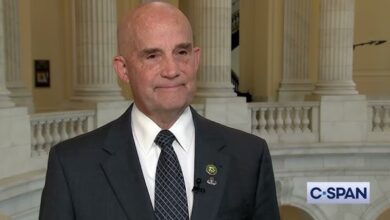Christians flee as Islamist Terrorists Sweep Across Iraq
By Gregory Tomlin
MOSUL, Iraq (BP) — Iraqi Christians came under fire again as the bloody campaign of Islamic militants spilled over from Syria into Iraq’s northern cities last week.
An estimated 10,000 fighters from the Islamic State of Iraq and al-Sham (the Levant), also known as ISIS and ISIL, advanced rapidly on Mosul and other northern Iraqi cities, such as Tikrit and Kirkuk, leaving a wave of destruction in their path and sending the Iraqi army reeling in panic. By June 17, ISIS terrorists were just 40 miles from Baghdad.
Iraqi soldiers, policemen and government officials captured by ISIS have been summarily executed, as have some Chaldean Catholics, according to reports from sources inside the besieged region. Those same sources claim nearly all of the remaining Catholics have fled Mosul.
“All the faithful have left the city,” Archbishop Emil Shimoun Nona told the Catholic World Report. “Who knows whether they will ever be able to return.”
Since the United States invaded Iraq in 2003 to overthrow Saddam Hussein, nearly 1 million Christians have left the country. An estimated 500,000 remained in the northern portion of the country among the Chaldean Catholic community, which has existed there for 2,000 years. Nona said there were “35,000 faithful living in Mosul” in 2003.
“Three thousand were still there in early 2014,” Nona said. “Now, probably no one is left there and that is tragic.”
Haitham Jazrawi, pastor of Kirkuk Evangelical Church, confirmed the report.
“Ninety nine percent of the Christians have left Mosul,” Jazrawi told World Magazine June 10.
The region’s Catholics have been under pressure for some time, according to Catholic News Service. The agency quoted an Iraqi Catholic identifying himself only as “Danny,” who said Christians “have been the objects of kidnapping, torture and killing by extremists, hoping to extort money from us or to force us to convert to Islam, for several months.”
Father Khalil Jaar, who is responsible for aiding Christian refugees who have reached Amman, Jordan, told Catholic News Service that ISIS forces have killed many Christians, but also Muslims who oppose their efforts to impose strict Sharia law.
“All the people are suffering. But as we are a minority — minority Christians — it is normal to suffer more than others. But even the Muslims are suffering from these fanatic people,” Jaar told CNS. “They don’t have mercy on anyone, Christian or Muslim. The only answer they have is to kill them.”
According to the newspaper La Stampa, whose Vatican Insider project reports daily on Catholics around the world, at least one church under construction in Mosul has been demolished and the fourth-century monastery of Mar Benham is in the hands of ISIS militants. Vatican sources published the e-mail correspondence of a Dominican friar in the area, who told his superior the situation was “critical and apocalyptic.”
“They murdered adults and children. Hundreds of bodies have been left in the streets and in the homes, without any mercy,” the Dominican friar wrote in his e-mail.
If not killed for their faith, Christians who remain in occupied Mosul will likely see the imposition of a “dhimma” by ISIS if the group holds onto the city, just as Syrian Christians experienced when the Islamists took control of the ancient Christian city of Raqqa in March.
Under a dhimma, a protection agreement much like those between mafia families and businesses, Islamists agree to offer “protection” to religious minorities in exchange for money. If the agreement is not signed, subjects are faced with the choice of converting to Islam or facing the sword.
The Israeli newspaper Haaretz reported in March that Christians in Raqqa, Syria, had signed the agreement, which committed them to a biannual tax of “four gold dinars” — about $500 per person.
In addition to being required to practice Christianity behind closed doors, Christians in Raqqa were told to follow 11 other directives in order to keep the agreement with their Muslim overlords. Among those directives, Christians were prohibited from building new sanctuaries or restoring ones damaged in the civil war there, and they were forbidden from aiding any faction or government opposed to ISIS, Haaretz reported.
The U.S. State Department condemned the agreement in Raqqa as a violation of “universal human rights.”
Nina Shea, writing in National Review Online, said the situation in northern Iraq shows “the religious cleansing of Christians from Iraq is entering the end game.”
“President Maliki is vowing that Iraq’s army will regain control, but this may take time. ISIS has controlled parts of Ramadi, the capital of Sunni Muslim Anbar province, and much of Fallujah for the past six months. When the army does eventually succeed in reversing jihadi control in Mosul, it may be too late for the Christians. Once Middle Eastern Christians flee to the West, they don’t return,” Shea wrote.
“This is a profound development for the Christian church, of course, which has had a two-thousand-year-old presence there. But it will have long-term national-security implications for the West. American political leaders have so far failed to distinguish the religious cleansing from its surrounding context of terror and conflict. They overlook the fact that religious pluralism and diversity are among today’s casualties.”
ISIS disavows any notion of freedom of religion. The group, which began as Al-Qaeda in Iraq, has morphed into a sect deemed too violent even by Al-Qaeda’s spiritual leader, Ayman al-Zawahiri, who was second in command to Osama bin Laden. Zawahiri has supported a group in Syria called Al-Nusra, which — though it has committed atrocities of its own — has been more protective of civilians.
According to Haaretz, al-Zawahiri told ISIS to operate within the guidelines established by Al-Qaeda or it would face “a dreadful battle.” But ISIS is not listening. The group is now under the command of Abu Bakr al-Baghdadi, who until 2009 was in U.S. custody at Camp Bucca in southern Iraq.
Al-Baghdadi, who claims to be a direct descendant of Islam’s founder, Muhammad, has surpassed al-Zawahiri in popularity and prestige among Sunni Islamists, according to a Washington Post report. A senior U.S. intelligence official told the paper he is “more violent, more virulent, more anti-American” than other potential successors to bin Laden.
His radical hatred of Jews, Christians and Americans in general is believed to be accompanied by his hatred of two other types of Muslims — Sunnis who do not believe in establishing an Islamic caliphate over the whole of the Middle East, and Shiite Muslims, with whom Sunnis have argued over the succession of Islamic imams (spiritual leaders) for nearly 1,500 years.
Al-Baghdadi’s brand of extremist Islam also puts him at odds with the Shiite-controlled Iraqi government, Iran and clerics such as Muqtada al-Sadr, who encouraged Shiite Muslims to attack American troops in Fallujah during the Iraq war.
Al-Sadr issued a statement through FARS, an official Iranian news agency, saying he would cooperate with the government of Prime Minister Nouri al-Maliki to “form peace units to defend the holy places” of both Muslims and Christians. What will likely follow is a larger religious war with any remaining Christians in Iraq caught in the middle of sectarian strife.
Elijah Abraham, born under a different name to a Shiite family in Baghdad, is now a Christian evangelist who travels to the Middle East often to train Christian pastors.
Abraham told Baptist Press the administration of President Barack Obama originally viewed ISIS as an enemy of Syrian President Bashar al-Assad and gave the group money and arms to aid its effort to overthrow Assad. Abraham said the move was a serious miscalculation that has brought harm to Christians.
“ISIS is an extension of Al-Qaeda. With American funds, now ISIS is killing Iraqis and planning to go for Baghdad and Iraqi Shiite shrines to settle an old score,” Abraham wrote in an e-mail. “Since 2009 with President Obama’s policies in the Middle East, there has also been a systematic cleansing of Christians in the Middle East.”
If ISIS gains the upper hand in the battle, Abraham said the world can expect to see more of what it saw June 15, when ISIS militants released a video reportedly showing the mass execution of captured Shiite Muslim military recruits.
“Christians will be slaughtered in this battle,” Abraham said.
Barnabas Fund, an aid agency that supports minority Christians in Islamic countries, issued a statement saying the recent attacks on Christians in Mosul are “a clear statement from ISIS that they are no longer welcome.”
“It is feared that this latest exodus could be the final death knell for the Christians of Iraq,” the group’s international director, Patrick Sookdheo, told CNS News.
“Having previously sought refuge in Syria, this is no longer an option, and as ISIS violence threatens the stability of the wider region, Christians have very few places of safety to which to run.”
The northern Iraqi city of Tal Afar, with its population of 200,000, also fell to ISIS militants June 15.
Copyright (c) 2014 Southern Baptist Convention, Baptist Press








